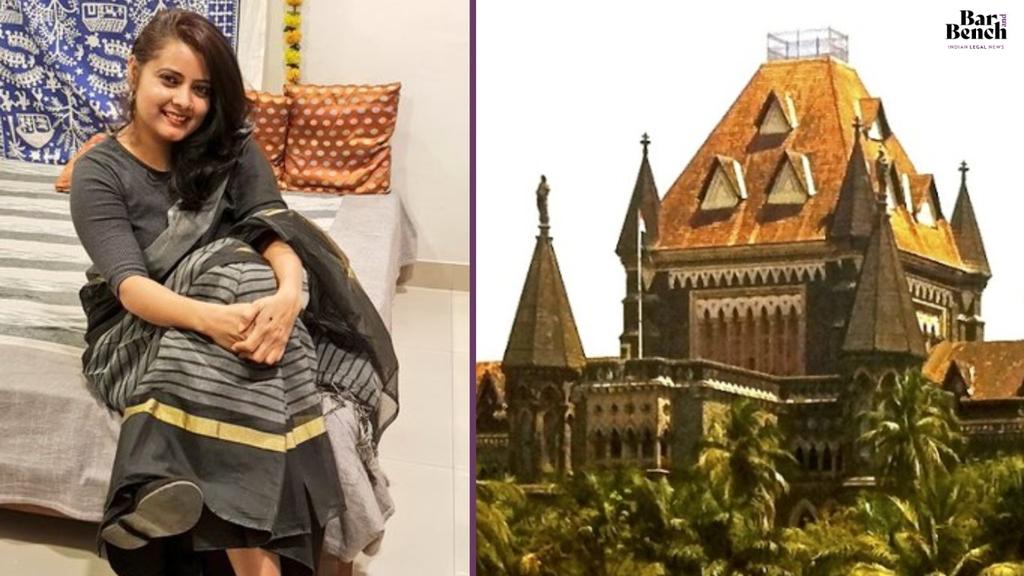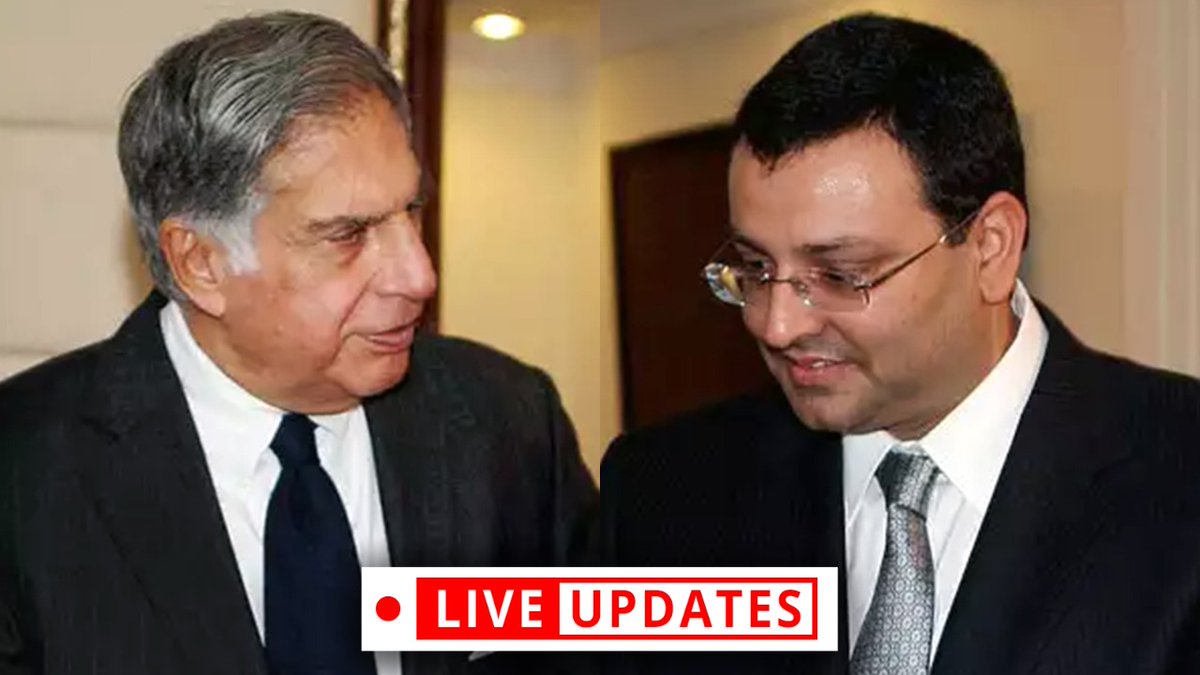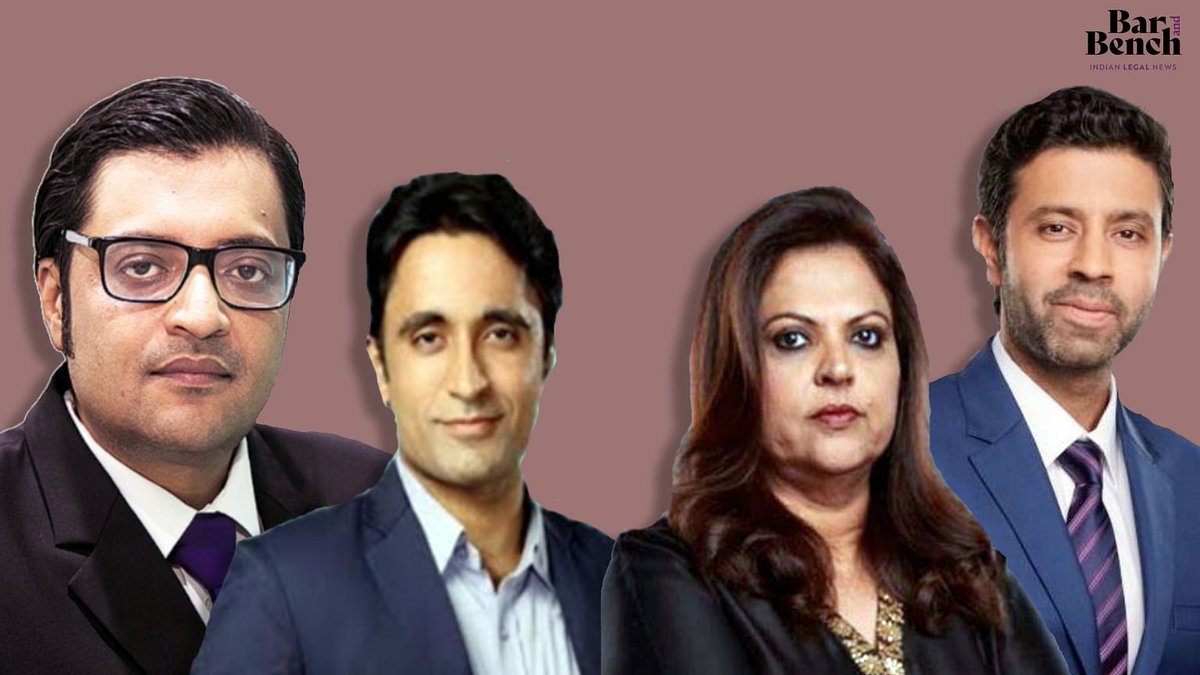
TATA v MISTRY [Day 3]
Hearing to continue before a Bench headed by Chief Justice of India SA Bobde.
Harish Salve will resume his arguments on behalf of Tata Sons Limited
@tatatrusts @TataCompanies
#SupremeCourt
Hearing to continue before a Bench headed by Chief Justice of India SA Bobde.
Harish Salve will resume his arguments on behalf of Tata Sons Limited
@tatatrusts @TataCompanies
#SupremeCourt

TATA v MISTRY
Bench assembles. Hearing commences
@tatatrusts @TataCompanies
#tatasons #supremecourtofindia
Bench assembles. Hearing commences
@tatatrusts @TataCompanies
#tatasons #supremecourtofindia
TATA v MISTRY
Harish Salve continuing with his arguments on the peculiarities of the Articles of Association of Tata Sons.
#tatasons #SupremeCourt
Harish Salve continuing with his arguments on the peculiarities of the Articles of Association of Tata Sons.
#tatasons #SupremeCourt

TATA v MISTRY
Salve explaining the scheme under Articles regarding appointment to board of directors and passage of resolutions by the board.
#tatasons #supremecourtofindia
Salve explaining the scheme under Articles regarding appointment to board of directors and passage of resolutions by the board.
#tatasons #supremecourtofindia
TATA v MISTRY
Salve says Mistry should have kept nominee directors informed in advance about resolutions so that Chairman Emeritus is kept in loop for smooth functioning.
Can Chairman Emeritus demand as right to be informed and have a discussion on resolutions, asks CJI Bobde.
Salve says Mistry should have kept nominee directors informed in advance about resolutions so that Chairman Emeritus is kept in loop for smooth functioning.
Can Chairman Emeritus demand as right to be informed and have a discussion on resolutions, asks CJI Bobde.
TATA v MISTRY
Advance discussion will ensure there is no situation in board meeting where nominee directors have to shoot down proposals. Otherwise it will become news in financial newspapers next day. These are price sensitive issues since Tata companies are listed: Salve
Advance discussion will ensure there is no situation in board meeting where nominee directors have to shoot down proposals. Otherwise it will become news in financial newspapers next day. These are price sensitive issues since Tata companies are listed: Salve
TATA v MISTRY
The amendment to Articles itself is not oppressive. When the amendment to Articles was approved unanimously, then it cannot be challenged later as oppressive as long as the procedure for amendment was followed: Salve
The amendment to Articles itself is not oppressive. When the amendment to Articles was approved unanimously, then it cannot be challenged later as oppressive as long as the procedure for amendment was followed: Salve
TATA v MISTRY
The content of the amendment can be challenged only of it is of such nature that it alters the basic foundation of the company: Salve
Are you bringing in the Basic Structure doctrine here: CJI SA Bobde
Yes: Salve
The content of the amendment can be challenged only of it is of such nature that it alters the basic foundation of the company: Salve
Are you bringing in the Basic Structure doctrine here: CJI SA Bobde
Yes: Salve
TATA v MISTRY
Salve moves on to the next submission
Allegations of misconduct are primarily relating to downstream companies and not Tata Sons: Salve
#tatasons #SupremeCourt
Salve moves on to the next submission
Allegations of misconduct are primarily relating to downstream companies and not Tata Sons: Salve
#tatasons #SupremeCourt
TATA v MISTRY
I was shocked to find an allegation that Mr. Ratan Tata interfered in conducting litigation against Docomo.
Mr Tata had said not to hide behind law to escape from paying Docomo instead they should be paid since that was the word by Tata: Salve
I was shocked to find an allegation that Mr. Ratan Tata interfered in conducting litigation against Docomo.
Mr Tata had said not to hide behind law to escape from paying Docomo instead they should be paid since that was the word by Tata: Salve
Basic Structure doctrine in TATA v. Mistry: Live Updates from Supreme Court
#SupremeCourt #basicstructure
@tatatrusts @TataCompanies @RNTata2000
barandbench.com/news/litigatio…
#SupremeCourt #basicstructure
@tatatrusts @TataCompanies @RNTata2000
barandbench.com/news/litigatio…
TATA v MISTRY
Senior Counsel CA Sundaram begins arguments on behalf of Shapoorji Pallonji firms - Cyrus investments and Sterling Investments
#SupremeCourt
Senior Counsel CA Sundaram begins arguments on behalf of Shapoorji Pallonji firms - Cyrus investments and Sterling Investments
#SupremeCourt
TATA v MISTRY
The relationship between Shapoorji Pallonji group goes back to 70 years: CA Sundaram
#tatasons
The relationship between Shapoorji Pallonji group goes back to 70 years: CA Sundaram
#tatasons

TATA v MISTRY
The issue is the business was being run in a manner which was prejudicial not just to minority shareholders but to the company itself: CA Sundaram
The issue is the business was being run in a manner which was prejudicial not just to minority shareholders but to the company itself: CA Sundaram
TATA v MISTRY
Tata Sons is only an investment company. It invests in the group companies. Tata Sons board takes decision on what direction the group companies should take. That is why functioning of group companies becomes important: CA Sundaram.
#SupremeCourt
@tatatrusts
Tata Sons is only an investment company. It invests in the group companies. Tata Sons board takes decision on what direction the group companies should take. That is why functioning of group companies becomes important: CA Sundaram.
#SupremeCourt
@tatatrusts
TATA v MISTRY
If the group companies want to take any decision, then Tata Sons as majority shareholder of those companies effectively takes that decision: CA Sundaram.
#SupremeCourt
If the group companies want to take any decision, then Tata Sons as majority shareholder of those companies effectively takes that decision: CA Sundaram.
#SupremeCourt
TATA v MISTRY
If you are a board managed company but the company is being run by the two nominees directors of Tata Trusts, then what is the point of even brining the matter to the Board, asks Sundaram.
@tatatrusts @TataCompanies
If you are a board managed company but the company is being run by the two nominees directors of Tata Trusts, then what is the point of even brining the matter to the Board, asks Sundaram.
@tatatrusts @TataCompanies
TATA v MISTRY
Tata Sons is effectively not a board managed company: CA Sundaram for Shapoorji Pallonji
@tatatrusts @TataCompanies @RNTata2000
Tata Sons is effectively not a board managed company: CA Sundaram for Shapoorji Pallonji
@tatatrusts @TataCompanies @RNTata2000
TATA v MISTRY
The largest shareholder of Tata Sons is Tata Trusts which is a public charitable trusts: CA Sundaram.
#tatasons #SupremeCourt
The largest shareholder of Tata Sons is Tata Trusts which is a public charitable trusts: CA Sundaram.
#tatasons #SupremeCourt
TATA v MISTRY
The relationship between Tata Sons and SP group was of mutual trust: Sundaram.
Has SP group lost money individually due to losses suffered by company: CJI
That will never happen. Both majority and minority will suffer in case of loss: Sundaram
@tatatrusts
The relationship between Tata Sons and SP group was of mutual trust: Sundaram.
Has SP group lost money individually due to losses suffered by company: CJI
That will never happen. Both majority and minority will suffer in case of loss: Sundaram
@tatatrusts
TATA v MISTRY
A company being a profit making company is not a criteria for deciding whether there is oppression or mismanagement: CA Sundaram.
#supremecourtofindia #tatasons
A company being a profit making company is not a criteria for deciding whether there is oppression or mismanagement: CA Sundaram.
#supremecourtofindia #tatasons
TATA v MISTRY
Companies Act 2013 made substantial changes
The test as per section 242 is whether the affairs of company is being run in a manner which is prejudicial to members or public interest or interests of company itself: Sundaram
#supremecourtofindia #tatasons
Companies Act 2013 made substantial changes
The test as per section 242 is whether the affairs of company is being run in a manner which is prejudicial to members or public interest or interests of company itself: Sundaram
#supremecourtofindia #tatasons
TATA v MISTRY
Does oppression means an act which prejudices other side so that it cause monetary loss or hampers the right of the member to take a decision? CJI Bobde
It could mean any act which leads to loss of confidence in the manner in which company is being run: Sundaram
Does oppression means an act which prejudices other side so that it cause monetary loss or hampers the right of the member to take a decision? CJI Bobde
It could mean any act which leads to loss of confidence in the manner in which company is being run: Sundaram
TATA v MISTRY
The can't any member walk in and claim oppression? CJI Bobde.
That is where tribunal looks into it and decides: Sundaram
The can't any member walk in and claim oppression? CJI Bobde.
That is where tribunal looks into it and decides: Sundaram
TATA v MISTRY
The Companies Act of 2013 expanded the scope for tribunal to interfere by include 'oppression' and 'prejudice' to member as a ground under section 242.
In earlier Act, only 'oppression' of members was a ground and not 'prejudice': Sundaram
@tatatrusts
The Companies Act of 2013 expanded the scope for tribunal to interfere by include 'oppression' and 'prejudice' to member as a ground under section 242.
In earlier Act, only 'oppression' of members was a ground and not 'prejudice': Sundaram
@tatatrusts
TATA v MISTRY
Decisions taken by Tata Sons if not made correctly affect the downstream companies. And that in turn will affect Tata Sons shareholders because Tata Sons' only income is the income from the downstream companies: Sundaram.
@tatatrusts @TataCompanies
Decisions taken by Tata Sons if not made correctly affect the downstream companies. And that in turn will affect Tata Sons shareholders because Tata Sons' only income is the income from the downstream companies: Sundaram.
@tatatrusts @TataCompanies
TATA v MISTRY
Under the 2013 Act, an action can be prejudicial without being oppressive. The two are distinct: Sundaram
#SupremeCourt
Under the 2013 Act, an action can be prejudicial without being oppressive. The two are distinct: Sundaram
#SupremeCourt
TATA v MISTRY
Why do you want to go into this distinction? CJI Bobde
Because there have been acts which have been prejudicial to us though not necessarily oppressive: Sundaram
#Tatasons #SupremeCourt
Why do you want to go into this distinction? CJI Bobde
Because there have been acts which have been prejudicial to us though not necessarily oppressive: Sundaram
#Tatasons #SupremeCourt
TATA v MISTRY
The act of converting company from public to private was to prejudice me because the protections afforded by virtue of being public was taken away: Sundaram
The act of converting company from public to private was to prejudice me because the protections afforded by virtue of being public was taken away: Sundaram
TATA v MISTRY
You will have to show us what were the precise actions which caused prejudice or oppression to you: CJI SA Bobde to Sundaram.
#tatasons #tata #mistry #SupremeCourt
You will have to show us what were the precise actions which caused prejudice or oppression to you: CJI SA Bobde to Sundaram.
#tatasons #tata #mistry #SupremeCourt
TATA v MISTRY
The tribunal has skipped coming to the conclusion that there are just and equitable grounds for winding up. That requirement has been skipped: CJI Bobde.
It has been done. I will show it to you: Sundaram
Alright: CJI Bobde.
#SupremeCourt
The tribunal has skipped coming to the conclusion that there are just and equitable grounds for winding up. That requirement has been skipped: CJI Bobde.
It has been done. I will show it to you: Sundaram
Alright: CJI Bobde.
#SupremeCourt
TATA v MISTRY
Sundaram reading case laws in support of his argument on oppression and prejudice.
Sundaram reading case laws in support of his argument on oppression and prejudice.
TATA v Mistry
The whole thing came to a head because Mistry was going to table a Corporate governance document which proposed to regulate the Tata Trusts say in Tata Sons so that two nominee directors don't decide everything: Sundaram
#tatasons #SupremeCourt
@RNTata2000
The whole thing came to a head because Mistry was going to table a Corporate governance document which proposed to regulate the Tata Trusts say in Tata Sons so that two nominee directors don't decide everything: Sundaram
#tatasons #SupremeCourt
@RNTata2000
TATA v MISTRY
The whole conduct by which the company was made a private limited company showed that minority was being sidelined: Sundaram
#tatasons #tatamistry
The whole conduct by which the company was made a private limited company showed that minority was being sidelined: Sundaram
#tatasons #tatamistry
TATA v MISTRY
CJI Bobde insists on correlating facts with the law which Sundaram has argued.
I am getting into the facts, replies Sundaram.
CJI Bobde insists on correlating facts with the law which Sundaram has argued.
I am getting into the facts, replies Sundaram.
TATA v MISTRY
Justifiable loss of confidence in management or exclusion from management in quasi partnership are grounds for winding up on just and equitable grounds: Sundaram
#tatasons #SupremeCourt
Justifiable loss of confidence in management or exclusion from management in quasi partnership are grounds for winding up on just and equitable grounds: Sundaram
#tatasons #SupremeCourt
TATA v MISTRY
So what you need to show us now is how NCLAT came to the conclusion that it was a fit case for winding up the company under just and equitable clause. Show us at the next hearing: CJI SA Bobde
Bench rises. Next hearing on Monday next week at 2 pm.
@tatatrusts
So what you need to show us now is how NCLAT came to the conclusion that it was a fit case for winding up the company under just and equitable clause. Show us at the next hearing: CJI SA Bobde
Bench rises. Next hearing on Monday next week at 2 pm.
@tatatrusts
• • •
Missing some Tweet in this thread? You can try to
force a refresh








